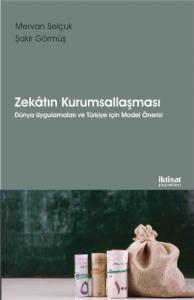-
RIGHTS & PERMISSIONS CATEGORIES
- Education (233)
- Psychology (124)
- See all
- (Will be deleted) Psychological Counseling, Career (9)
- Applied Psychology (22)
- Clinical Psychology (73)
- Developmental Psychology (23)
- Experimental Psychology (12)
- Introduction to Psychology (4)
- Social Psychology (20)
- Economics and Administrative Sciences (189)
- See all
- Aviation Management (12)
- Business (130)
- Econometrics (24)
- Economy (47)
- Finance - Tax (2)
- International Trade and Logistics (20)
- Labor Economics and Industrial Relations (11)
- Management Information Systems (10)
- Maritime Management (6)
- Public Administration and Political Science (76)
- See all
- International Relations (43)
- See all
- African Studies (1)
- Asia-Pacific-Far East Studies (2)
- Crisis and International Conflicts (2)
- International Migration (5)
- International Organizations (1)
- International Security (1)
- Introduction to International Relations (6)
- Middle Eastern Studies (6)
- Regional Studies (10)
- Russian Studies (2)
- Terrorism and Regional Security (3)
- Turkish Foreign Policy (10)
- Turkish World Studies (4)
- Law (11)
- Local Administrations, Urban and Environmental Policies (8)
- Political Science and Management (23)
- Social Sciences and Humanities (220)
- See all
- Anthropology (3)
- Geography (6)
- History (25)
- Liiterature (28)
- Linguistics (5)
- Philosophy (49)
- See all
- Ancient Philosophy (2)
- Contemporary Philosophy (6)
- Educational Philosophy (1)
- History of Philosophy (4)
- History of Science and Philosophy of Science (7)
- Introduction to Philosophy (6)
- Islamic Philosophy and Thought (20)
- Medieval Philosophy (2)
- Moral-Ethical Philosophy (8)
- Society and Political Philosophy (6)
- Sufi Philosophy (2)
- Research Methods (21)
- Sociology (77)
- See all
- Commune Problems (2)
- Communication Sociology (6)
- Criminal Sociology (4)
- Economic Sociology (5)
- Educational Sociology (2)
- Gerontology-Aging (1)
- Immigration Sociology (3)
- Introduction to Sociology (5)
- Political Sociology (8)
- Race and Ethnicity Studies (1)
- Regional Studies and Globalization (2)
- Social Structure and Change (12)
- Sociology of Change, Underdevelopment and Modernization (1)
- Sociology of Culture (2)
- Sociology of Religion (13)
- Sociology of Work (3)
- Urbanization and Environmental Sociology (3)
- Women and Family Sociology (5)
- Work and Organization Sociology (5)
- Theology (74)
- World Languages (6)
- Communication Sciences (51)
- Science and Mathematics (104)
- Architecture and Fine Arts (26)
- Engineering (153)
- See all
- Aerospace Engineering (16)
- Agriculture, Forestry and Aquaculture (13)
- Biomedical Engineering-Bioengineering (3)
- Chemical Engineering (6)
- Civil and Survey Engineering (18)
- Computer and Software Engineering (30)
- Control and Automation Engineering (8)
- Electronics, Electrical and Energy Systems Engineering (20)
- Environmental and Earth Sciences Engineering (5)
- Industrial Engineering (50)
- Manufacturing Engineering (12)
- Map engineering (1)
- Marine and Marine Engineering (10)
- Materials and Metallurgical Engineering (5)
- Mechanical and Automotive Engineering (21)
- Mechatronic Engineering (5)
- Mining, Geology, Geophysics and Petroleum Engineering (5)
- Textile Technologies and Engineering (1)
- The Food Engineering (4)
- Health Sciences (116)
- See all
- Basic Medical Sciences (25)
- Child Development (23)
- Department of Occupational Therapy (4)
- Emergency Aid and Disaster Management (5)
- Gerontology (5)
- Health Care Services (16)
- Healthcare Management (15)
- Internal and Surgical Diseases (2)
- Language and Speech Therapy Department (3)
- Medical Services and Techniques (23)
- Midwifery (12)
- Nursing (14)
- Nutrition and Dietetics (8)
- Occupational Health and Safety (3)
- Pharmacy (4)
- Physical therapy and rehabilitation (2)
- Social Service (24)
- Veterinary Medicine (9)
- Tourism - Travel - Gastronomy (13)
- Personal Development - Hobby (24)
- Hobby (10)
- Children's Books (10)
- Sports Sciences (1)
- Publications in Foreign Languages (49)
- Our Collaborations (54)
INSTITUTIONALIZATION OF WITNESS - World Practices and Model Proposal for Turkey

Author's
Publisher
İktisat Yayınları
Barcode
9786058125025
ISBN
978-605-67900-8-9
Pages
216 Page
Dimensions
13,5x21
Paper/Color
Kitap Kağıdı / Tek Renk
Number of Prints
1. Baskı
Print Year
Ocak, 2019
The connection of Muslims with zakat has decreased day by day and has almost reached the breaking point. It is seen that there is a decrease in the number of people who calculate zakat in accordance with its originality and deliver it to those who deserve it. While the zakat potential of Islamic countries can easily eliminate the problems of income distribution and poverty, the insufficient institutionalization of zakat causes many socio-economic problems and an inability to effectively combat existing problems. Hz. Although it cannot be collected and distributed under the authority of the state and forcibly, as in the Sunnah of the Prophet (pbuh), it is seen that zakat is tried to be implemented in an institutional structure with state support in countries such as Malaysia, Indonesia and Pakistan. In this study, information about the countries where zakat is applied in an institutional structure is given and these zakat institutions are examined comparatively. In the light of this information, taking into account the existing legal and institutional structures, a model has been created for a modernly applicable zakat institution in Turkey.